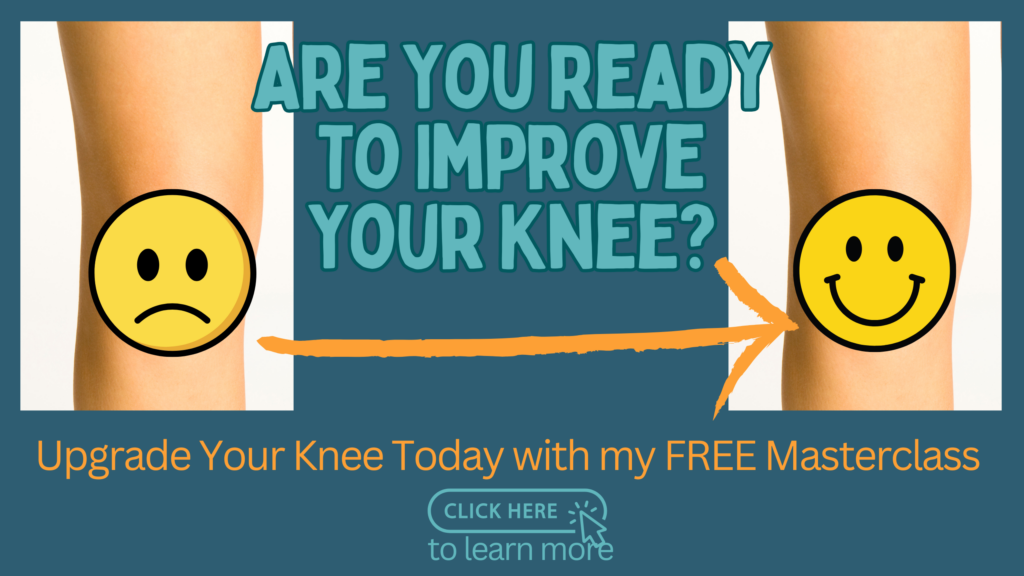Introduction
If you’re one of the millions of people in the UK dealing with arthritic knees, you know that even simple tasks like climbing stairs can be a struggle. Knee pain, stiffness, and instability can make each step feel like a challenge.
But don’t worry—there are ways to make it easier! In this blog, we’ll share 9 practical tips to help you climb stairs with more confidence and less pain. Let’s get started!
1. Strengthen Your Leg Muscles
Building strength in the muscles around your knee is one of the best ways to improve stair climbing. Stronger muscles provide better support and stability, reducing strain on your joints.
But be careful! Many people worsen their knee pain by doing the wrong exercises. That’s why a structured, two-stage approach—like my Arthritic Knee Program—is essential.
Stage 1: Focuses on settling knee pain. Most people feel significant relief within two weeks, making walking and stairs easier.
Stage 2: Introduces gentle strength-building exercises without aggravating the knee.
Real-life success story: Pam (89.5 years young) used to dread stairs and had to pull herself up with her arms. After just two weeks of Stage 1, stairs became easier and less painful. After three months, she was able to climb one foot per step—something she hadn’t done in over five years! Want similar results? My Arthritic Knee Program is designed to help YOU build a strong, pain-free knee – just like Pam!
TOP TIP – Start your strength journey TODAY by joining my FREE Masterclass. Here I share exercises top tips and more. Click here to learn more and enrol. I would love to see you there.
2. Step with Both Feet on Each Step
If your knee is painful, it’s often easier to step with both feet on each step rather than alternating.
- Going Up: Lead with your good leg.
- Coming Down: Lead with your bad leg.
This technique allows your stronger leg to do more of the work while reducing stress on your weaker knee.
3. Use Handrails for Support
Handrails are your best friend when climbing stairs with arthritis!
- Grip the handrail firmly for balance.
- Use your arms to offload pressure from your knees.
- Always use a staircase with handrails whenever possible.

4. Use a Stick or Crutch Correctly
If you use a stick or crutch, don’t leave it at the bottom of the stairs! It can provide essential support both up and down.
How to Use a Stick or Crutch on Stairs:
- Going Up: Good leg → Bad leg → Stick/crutch (repeat).
- Going Down: Stick/crutch → Bad leg → Good leg (repeat).
TOP TIP – Even if you have two handrails, many people find using one handrail and a stick easier. Try both and see what works for you!
5. Take It Slow and Steady
Rushing up the stairs can increase pain and risk of falling.
- Take one step at a time.
- Pause if needed—there’s no rush!
- Keep your movements controlled and steady.
Did you know?
8.75 million people in the UK have osteoarthritis, making it the most common form of arthritis! You are not alone in this journey.
I’m here to HELP and SUPPORT you, click here to learn how.

6. Wear Proper Footwear
The right shoes can make a huge difference when climbing stairs with arthritis.
- Choose shoes with good cushioning and arch support.
- Avoid bare feet or soft slippers—they offer little support.
- Consider orthotic insoles to reduce stress on your joints (assessed in my Arthritic Knee Program).
These blogs may be helpful.
Comparing Top Footwear for Arthritic Knees: A Comprehensive Guide
The Best Sandals for Arthritic Knees: Supportive Styles for Summer
Footwear for Arthritic Knees: Are Birkenstocks and Hoka Shoes Good Choices?
7. Consider Assistive Devices If Needed
If stairs become too difficult, stairlifts or other assistive devices may help maintain your mobility and independence.
But first—try to build your strength! Many people see huge improvements in stair climbing with my Arthritic Knee Program.
8. Manage Your Weight
Excess weight adds extra stress to your knees, making stairs harder to climb.
The problem? Many people struggle to exercise due to knee pain.
That’s why my Arthritic Knee Program includes gentle exercises specifically designed for people with arthritis. You can also find great tips on the Versus Arthritis website for safe ways to stay active.
9. Listen to Your Body
It’s important to know your limits when dealing with arthritis.
- If your knee is sore and inflamed, don’t push too hard—this can worsen pain.
- When your knee is less painful, gradually increase your activity.
- Adjust your approach based on how your knee feels each day.
Conclusion
Living with arthritic knees can be challenging, but stairs don’t have to be a struggle! By following these 9 expert tips, you can improve your confidence, reduce pain, and move more easily.
Want to build stronger, pain-free knees?
My Arthritic Knee Program is designed to:
– Reduce pain within two weeks.
– Strengthen your knees without aggravation.
– Help you climb stairs with ease.
You are NOT alone! This is a common problem—but one you can improve.
Take care, Helen
Helen Manders BSc (Hons) MCSP HCPC
Chartered Physiotherapist Treating Arthritic Knees Since 2001




